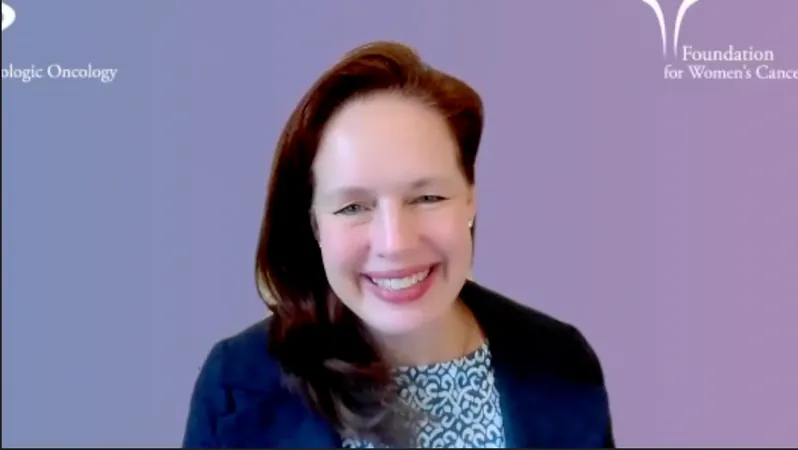
Breaking Down Barriers: The Future of Gynecologic Cancer Trials and Patient Care
2024-10-10
Author: Li
Overview of Gynecologic Cancer Treatment and Trials
In a groundbreaking discussion on gynecologic cancer treatment, Dr. Ginger J. Gardner, an esteemed physician and leader at Memorial Sloan Kettering Cancer Center, emphasized the transformative potential of innovative therapeutic trials.
With advancements in targeted therapies, immunotherapies, PARP inhibitors, and anti-angiogenesis agents, a new era of hope is emerging for patients dealing with various forms of gynecologic cancer.
Current Landscape of Clinical Trials
Dr. Gardner provided insights into the current landscape of clinical trials, noting a significant uptick in the number of trials available for gynecologic cancers.
She highlighted specifically the TUBA-WISP II trial (NCT04294927), which focuses on reducing the risk of ovarian and tubal malignancies by employing a strategy of delayed oophorectomy for high-risk patients.
Challenges in Access and Outreach
Despite exciting developments, Dr. Gardner acknowledged the challenges that persist in ensuring equitable access to these trials and effective care.
The Foundation for Women's Cancer is taking decisive steps to bridge these gaps, employing community outreach initiatives to raise awareness about gynecologic cancers.
From attending local events, like the Illinois State Fair, to engaging with historically marginalized communities, the foundation aims to disseminate crucial information and encourage participation in clinical trials.
Educational Resources for Patients
The Foundation for Women’s Cancer has developed an array of educational resources available on their website, including brochures on gynecologic anatomy, facts about rare tumor types, and comprehensive information on disease prevention and treatment options.
Patients can access videos that clarify common misconceptions about clinical trials, including the differences between placebo treatment and active treatment.
Most of these resources are offered in multiple languages, ensuring that all women can benefit from this vital information.
Conclusion and Future Directions
As the landscape of gynecologic cancer treatment evolves, it is essential for patients to understand their options for prevention, treatment, and clinical trial enrollment.
With the increasing availability of cutting-edge therapies and a strong emphasis on education and outreach, there is promise for better clinical outcomes and hopefully a transformative future in the fight against gynecologic cancers.
Stay tuned, as the advancements in gynecologic cancer therapies continue to unfold, providing new opportunities for patients to reclaim their health and navigate their treatment journeys effectively.



 Brasil (PT)
Brasil (PT)
 Canada (EN)
Canada (EN)
 Chile (ES)
Chile (ES)
 España (ES)
España (ES)
 France (FR)
France (FR)
 Hong Kong (EN)
Hong Kong (EN)
 Italia (IT)
Italia (IT)
 日本 (JA)
日本 (JA)
 Magyarország (HU)
Magyarország (HU)
 Norge (NO)
Norge (NO)
 Polska (PL)
Polska (PL)
 Schweiz (DE)
Schweiz (DE)
 Singapore (EN)
Singapore (EN)
 Sverige (SV)
Sverige (SV)
 Suomi (FI)
Suomi (FI)
 Türkiye (TR)
Türkiye (TR)